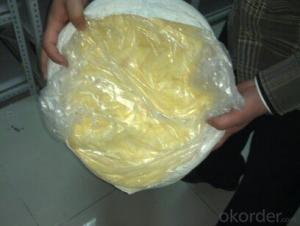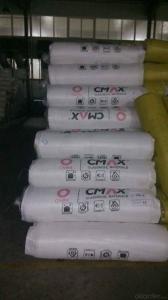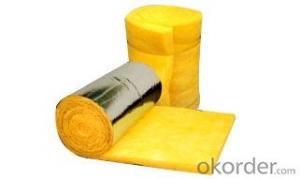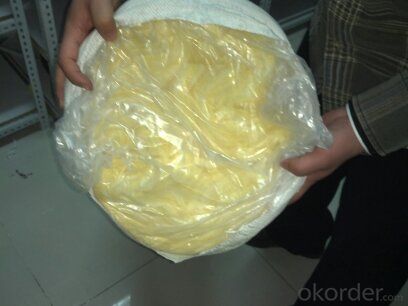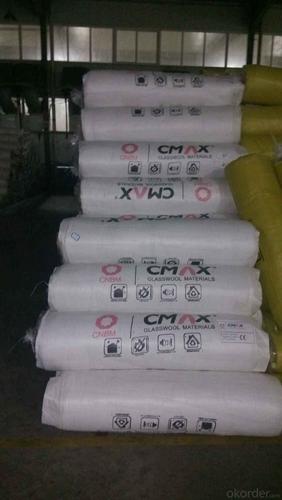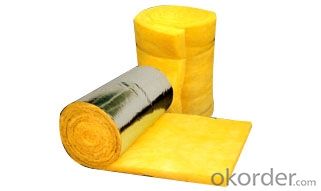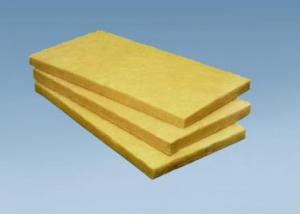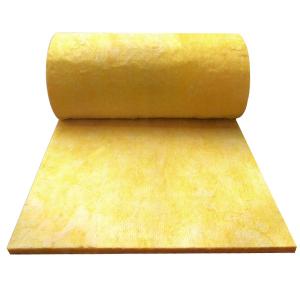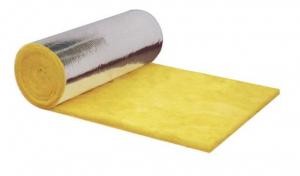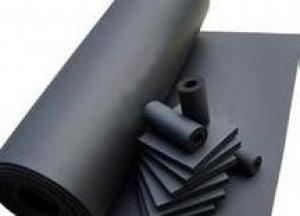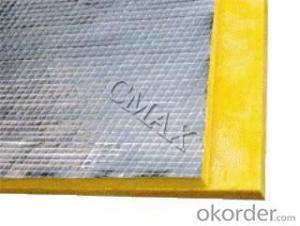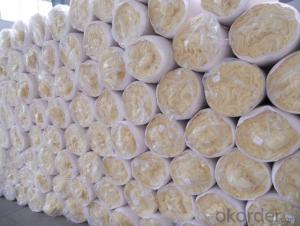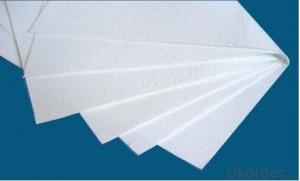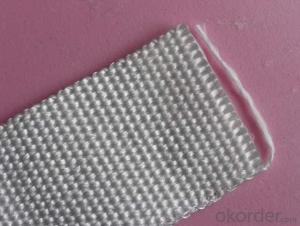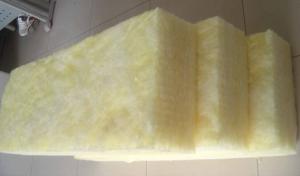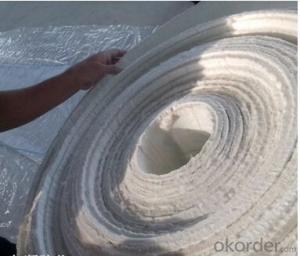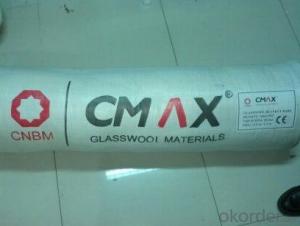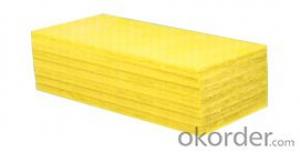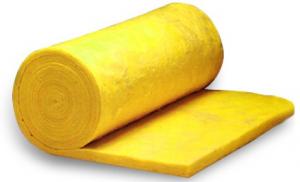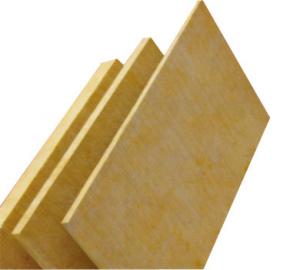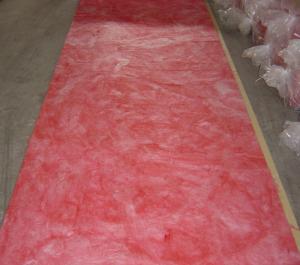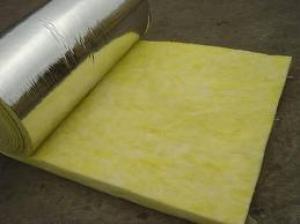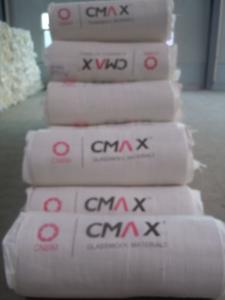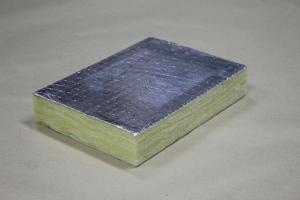Glass Wool Thermal Insulation Blanket Building Material
- Loading Port:
- Shanghai
- Payment Terms:
- TT or LC
- Min Order Qty:
- 10000 m²
- Supply Capability:
- 10000000 m²/month
OKorder Service Pledge
OKorder Financial Service
You Might Also Like
Production Description
Glass wool blanket is in flexible form for ease of installation over large areas. Both products are available to order with a wide range of density and thickness, and with various types of facing applied.
Standard Size
Item | Unit | Index |
Density | Kg/m3 | 10 - 48 |
Thickness | mm | 25-150 |
Width | mm | 1200 |
Length | mm | 5000-30000 |
Remark:
Other sizes available upon request Facing materials can be applied upon request
Technical Data
Item | Unit | Index |
Average Fiber Diameter | μm | 5-7 |
Water Content | % | ≤1 |
Grade of Combustibility | Non-Combustible Grade A | |
Thermal Conductivity ( 25℃) | W/mK | 0.038- 0.045 |
Reshrinking Temp | ℃ | ≥250 |
Hydrophobic | % | ≥98 |
Moisture Rate | % | ≤5 |
Noise Resistant Coefficient (NRC) | 0.75 | |
Slag Inclusion Content | % | ≤0.3 |
Application
Glass Wool are widely used in public, commercial and residential buildings as well as industrial plants, for applications such as roofing, external wall, partition wall and floating floor to provide fire protection, thermal insulation, acoustic control and condensation control.
Specifications
non-insulated aluminum flexible duct
extension rate:1:10
Low /medium pressure central HVAC system
flame and heat resistant
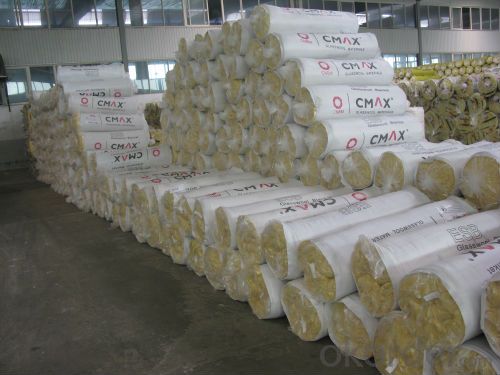
- Q: What kind of glass wool is used for most buildings?
- Ask the dealer for product descriptions, and you can search its specifications and parameters and then design based on the performance specifications of specific products. I suggest you first determine which brand of thermal insulation cotton to use, or check if the number is in the tolerance range of national standards of the manufacturers, of course, it is a relatively wide range. I recommend Owens Corning ultrafine glass fiber insulation cotton.
- Q: Does rock wool refer to the glass wool?
- Rock wool is not glass wool, ~ ~ ~ two kinds of products, appearance, price, performance are different, have obvious difference.
- Q: what's the price of high temperature resistance glass wool?
- Hello the different thickness and unit weight of the glass wool has different prices , generally a few dollars for each square meter, then if you are from Hebei, there are many companies have this products in Langfang, you can go there to consult. Price depends on how much K you need, that is, the number of density, the current mill price is around 2500 for one ton.
- Q: What is the thermal insulation material of glass wool?
- The density is 12kg / m3, isn't it?
- Q: What harm dose glass fiber cotton do to human body?
- It may cause great harm to eyes and mucosa. Workers who are exposed to glass fiber for a long time may contract contact dermatitis, but some workers can gradually endure it, which is known as "hardening phenomenon".The degree of skin damage depends on fiber diameter and roughness of surface. For now it is widely recognized that only when the diameter exceeds 5μm, the fibre will be obviously irritative.Few workers who contact glass fiber and rock wool have skin allergies, but so far these fibers have not been confirmed to be sensitinogen.
- Q: Whether the rigid section of aluminium foil glass wool can be twined with glass fiber cloth
- Yes, you can add glass silk cloth when construction and production
- Q: How many types of centrifugal glass wool?
- it has 3 to 5 kinds.
- Q: What are the differences among glass wool, rock wool and mineral wool?
- Glass wool: The main raw material is glass, the fire rating of which is A-level, and the heat conductivity coefficient is 0.037, the shrinkage temperature is around 270 degrees. Uses: It has a significant cold insulation performance. Rock wool: The main raw material is basalt, the fire rating of which is A-level, and the heat conductivity coefficient is 0.040, the shrinkage temperature is around 730 degrees. Uses: It can be used in high-end engineering projects such as construction, shipbuilding, petrochemical ones. Mineral wool: The main raw material is slag, the fire rating of which is A-level, and the heat conductivity coefficient is 0.044, the shrinkage temperature is around 680 degrees. Uses: It can be used as filling and thermal insulation materials for curtain walls.
- Q: How much is the Dalian glass wool fireproof panel?
- Glass silk roll mat plate heat resistant and flame retardant firewall roof insulation and sound absorbing material cotton 150 yuan home application soundproof cotton and interior sound absorbing panels glass wool board insulation materials plant thermal insualtion fireproof and noise reduction 56K 22 Yuan glass wool board 25MM movie theater meeting room court wall that against the hits high density sound-absorbing cotton fireproofing prices are above $ 20 fire from the network, for reference.
- Q: What's the difference between glass?wool?board and rock wool board ?
- Glass wool is glass wool roll mat made through fibering of molten glass and then solidification by adding binder, and fibre?diameter of glass wool depends on centrifugation extrusion technology. The difference is the centrifugation techniques, TEL centrifugation technique of Saint-gobain Aesop who is the founder of glass wool, is the most popular technique currently. At present the domestic glass wool market is gradually expanding. Companies such as Quanhe Chemical Co., Ltd. in Dacheng have made significant contributions to promote glass wool. Rock wool board is artificial inorganic fibers made from basalt, and processed through melting in high temperature, with light weight, low heat conductivity coefficient , heat absorption, non-combustible characteristics. The initial development should be consistent with stipulation in Application types and basic requirements of building thermal insulation materials. It is generally used in industrial architectures. Pilot run succeeded in June 198. Rock wool board is new type of thermal insulating, fire retardant and sound absorbing material.
Send your message to us
Glass Wool Thermal Insulation Blanket Building Material
- Loading Port:
- Shanghai
- Payment Terms:
- TT or LC
- Min Order Qty:
- 10000 m²
- Supply Capability:
- 10000000 m²/month
OKorder Service Pledge
OKorder Financial Service
Similar products
Hot products
Hot Searches
Related keywords
